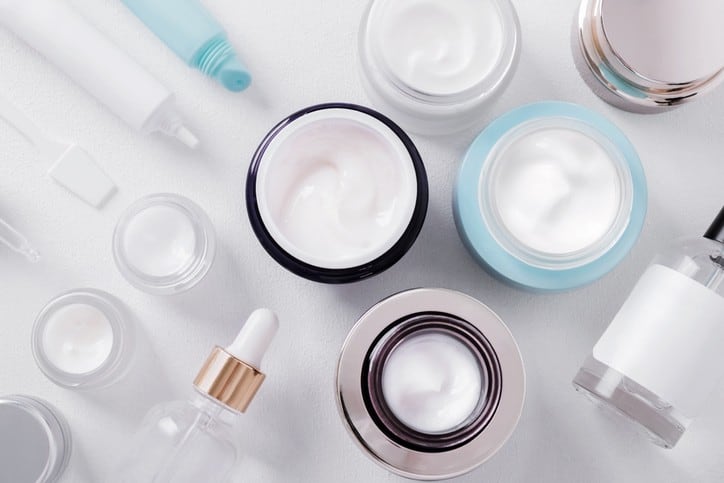Interleukin-1 receptor antagonist (IL-1RA) is a key protein for ageing regulation. According to FANCL, it is an anti-inflammatory cytokine that increases and normalises during inflammation and is a protein that also promotes cell proliferation.
According to previous studies, FANCL confirmed that IL-1RA is involved in the mechanism of preventing cell proliferation that causes ageing. By studying the skin of subjects in their 40s, the firm found that IL-1RA decreases with age and has a positive correlation with skin elasticity.
Based on the former study, the firm aimed to investigate the possibility that IL-1RA in the stratum corneum was an indicator of the increase or decrease of wrinkles formation.
To test the hypothesis, researchers conducted an experiment with 11 subjects with healthy skin. The subjects were made to use a cream with 0.1% retinoic acid on one cheek and a placebo cream twice a day for eight weeks.
Using a skin measurement device that reproduces changes in skin surface images, textures, wrinkles, haemoglobin and melanin in 2D and 3D images using optical technology, their skin condition was assessed by measuring the nasolabial fold, IL-1RA levels and trans-epidermal water loss (TEWL).
According to the results, using the retinoic acid cream decreased the depth of the nasolabial fold while levels of IL-1RA increased on week eight compared to week zero.
These results showed that the improvement of wrinkles and the increased levels of IL-1RA were linked, confirming that IL-1RA can be used as an index of improvement of wrinkles by the stratum corneum biomarker.
Vitamin C increases IL-1RA
By understanding the mechanism of IL-1RA and how it can affect wrinkle formation, the researchers worked on a formulation to develop a cosmetic solution that could improve the appearance of wrinkles.
While the retinoic acid cream used in the previous experiment could increase the levels of IL-1RA, it also increased TEWL, which the researchers attributed to a decrease in skin barrier function.
The team turned to ascorbic acid 2-glucoside (AA2G), a stable version of vitamin C which is widely used as a skin care ingredient.
A facial essence was formulated with AA2G and tested out on the cheeks of 11 subjects twice a week for 12 weeks.
Using the same skin measurement methods, the formula was found to increase IL-1RA and improved the appearance of the nasolabial fold.
Unlike retinoic acid, TEWL was not observed to increase, indicating that the ingredient could be used to improve wrinkles without straining the skin, said the study.
“It was confirmed that ascorbic acid 2-glucoside, a skin care ingredient that produces IL-1RA, is an effective material for improving signs of ageing such as wrinkles, with less burden on the skin. By developing new products based on these, we believe that we can contribute to anti-ageing cosmetics that customers will love for a long time.”





